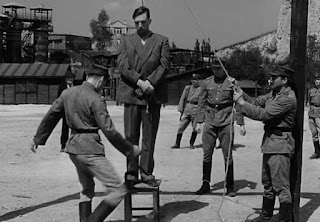DID you know that George Joseph Smith who later became known in 1914 as the ‘Brides in the Bath Murderer’ set up a small shop at 389
DID you know that George Joseph Smith who later became known in 1914 as the ‘Brides in the Bath Murderer’ set up a small shop at 389, Gloucester Road, Bristol as a second-hand furniture dealer. (near Ashely Down Road junction).
A callous crook, he murdered women he had conned into marriage weeks, and sometimes just days after their wedding.
Always insuring their lives and having had them make out a will in his favour, he thought he had found a fool-proof get rich quick scheme.
A cold-hearted con-man whose crimes were motivated purely by financial gain, he was born in the East End of London in 1872 and by the age of nine had been sent to reform school for thieving. He left at 16 with a talent for exploiting women.
George Joseph Smith (January 11, 1872 – August 13, 1915) was an English serial killer and bigamist. In 1915 he was convicted and subsequently hanged for the slayings of three women, the case becoming known as the "Brides in the Bath Murders".
As well as being widely reported in the media, the case was a significant case in the history of forensic pathology and detection. It was also one of the first cases in which similarities between connected crimes were used to prove a deliberation, a technique used in subsequent prosecutions.
Between 1912 and 1914, he left three brides dead in baths after taking them for every penny. Smith made the drownings look like accidents and collected the inheritance and life insurance without suspicion.
Smith later went to Bristol, where he set up a small shop at 389 Gloucester Road as a second-hand furniture dealer.
At 368, in the same road, dwelt Edith Mabel Pegler with her mother. On July 1 she advertised for a situation as housekeeper, where a servant was kept. Smith replied to an advertisement, and she speedily consented to keep house for him, although he was not in a position to afford a servant.
After a week' acquaintance, Smith had so captivated Miss Pegler' s maiden heart, that she consented to be his, although his means were very nebulous a mythical aunt who allowed him money, and " that he went about the country dealing."
The marriage was solemnised at St. Peter's Registry Office, Bristol, on July 30, by special licence, Smith having married for the first time in his real name, describing himself as thirty-three years of age, a bachelor and general dealer, son of George Smith, deceased, figure artist .
Later Police enquiries showed that Smith had conducted seven bigamous marriages between 1908 and 1914.
At the age of 26, in January 1898, using the name of George Love, Smith had married, legally and for the first time, 18-year old Caroline Thornhill in Leicester. They moved to London, and she worked as a maid for a number of employers, stealing from them under her husband's tuition. Caroline Love was arrested in Worthing, trying to pawn some silver spoons, and she was sent to prison for 12 months.
On her release she incriminated her husband, who was then jailed for two years in January 1901. On his release , Mrs Love fled to Canada.
In June 1908 Smith met a widow from Worthing, Florence Wilson, and married her three weeks later. By 3rd July he had left her after taking £30 she had withdrawn from her savings account, and selling all her belongings.
By 30th July 1908 he had married Edith Pegler in Bristol who had replied to his advertisement for a house keeper.
Then, in October 1909 he married Miss Sarah Freeman, using the name of George Rose. He also married Alice Reid in September 1914, using the name of Charles Oliver James.
Smith more smartly attired!
Smith apparently had a masterful, hypnotic way with some women, a trait which was only exceeded by his ruthlessness in acquiring their money.
When he appeared at the Old Bailey, charged with murdering Alice Burnham, Bessie Munday and Margaret Lloyd, Detective Inspector Neil demonstrated to the jury the method of drowning his victims by raising their knees whilst they were in the bath.
His assistant, a nurse in a bathing costume, herself required artificial respiration after the court room demonstration, and Smith was duly convicted.
Smith's trial took place during the dark days of the First World War, and the Judge, Mr Justice Scrutton, remarked upon the irony that "..while this wholesale destruction of human life is going on, for some days all the apparatus of justice in England has been considering whether one man should die..."
The jury returned their Guilty verdict in 22 minutes, and Smith was executed on Friday 13th August at Maidstone prison by John Ellis.
Caroline Thornhill, whom Smith had married legally, was now a widow, and she married a Canadian soldier the day after Smith's execution.











Comments
Post a Comment